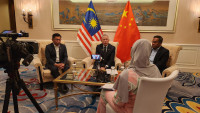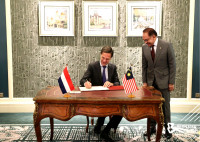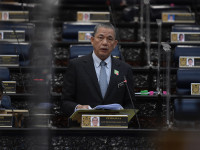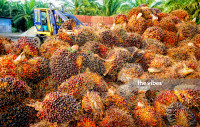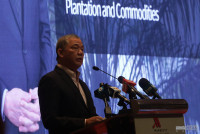IN JANUARY, Malaysia bore witness to several astonishing statements from ministers and state officials regarding Malaysian wildlife. The first was from Plantation Industries and Commodities Minister Datuk Seri Zuraida Kamarudin, responding to claims that orangutans were being killed in Malaysian oil palm plantations.
She said, “if you see an orangutan, the orangutan will kill you first, not you kill the orangutan first”.
The second was by the director of the Kelantan Forestry Department, Abdul Khalim Abu Samah who (incorrectly) cited a WWF report, and said logging was beneficial to tigers. WWF quickly clarified that its report only indicated as such for selective logging rather than indiscriminate logging, which was rampant in the state.
These statements are often superfluous, facetious and made in a humorous, nonchalant and dismissive manner. If government officials are trying to be serious, it is often disingenuous in nature and often based on anecdotal evidence or misrepresentation of scientific reports.
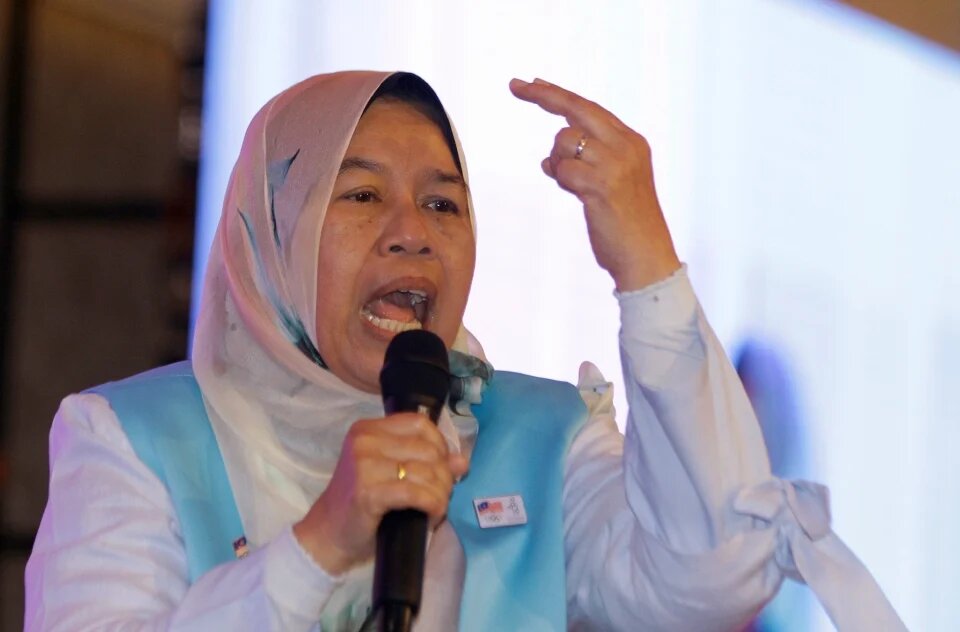
New characters, same story
While these two recent examples have once again brought Malaysia into the international spotlight, it is by no means something that is new in Malaysia’s approach to addressing environmental issues.
The previous administration under the supposedly more progressive Pakatan Harapan government also saw its Primary Industries and Commodities Minister Teresa Kok, encouraging laughter in Parliament as she credited her youthful looks to “a spoonful of red palm oil a day”.
Indeed, government rhetoric has often focused on sidestepping glaring sustainability and environmental concerns by erecting red herrings. The debate about palm oil has long moved beyond questions on health benefits. And death by orangutan is not a major problem in Malaysia.
This strategy has been very effective in disarming proper discussions on pressing environmental problems, both among policymakers and the public.
Episodes like these often occur as storms in little teacups, with the government being ridiculed by the opposition and the public or made the subject of internet memes. However, the brouhaha soon dies down and there is often little to no change in government policy.
How to not respond to constructive criticism
This “red herring” strategy is especially pronounced in Malaysia’s response to environmental concerns about palm oil sustainability. Often, these complaints are brushed off as “just” western propaganda, misplaced sentiment, or green protectionism.
For example, the government’s “Love MY Palm Oil” (2019) and “Palm Oil is God’s Gift” (2020) campaigns aimed to “fight growing anti-palm oil sentiment around the world”. The government has been reluctant to publicly acknowledge any sustainability issues in the Malaysian palm oil sector, or engage with criticism in a constructive and transparent manner.
Shockingly, Kok accused children from an international primary school in Kuala Lumpur for doing a “disservice to the country” by staging a presentation about the link between palm oil and deforestation. This was despite the underlying message of the presentation, which (aligning with government policy) called for all palm oil to be sustainably grown.
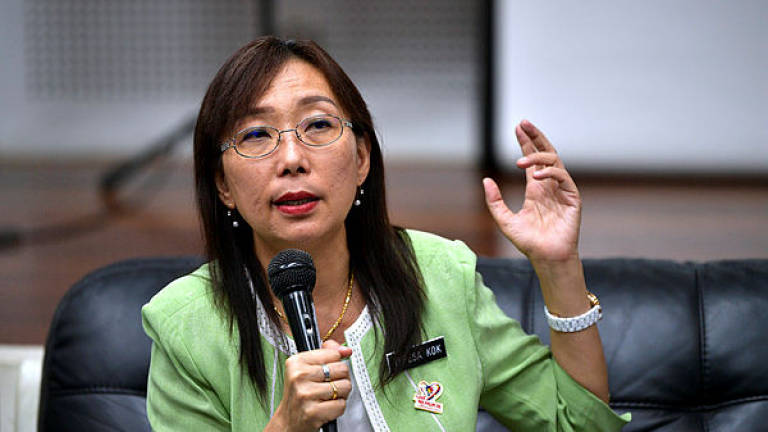
Shooting ourselves in the foot
While the claim of green protectionism in other vegetable oil-producing countries may hold some water, this should not detract from the fact that environmental issues in the palm oil sector are very real.
But there has been progress. There has been a drastic reduction in the deliberate use of fire on plantations since the peak haze years of 1997-1998. Most major plantation companies now practice a “circular economy”, using palm oil waste products to power mills. And palm oil expansion will be capped at 6.5 million hectares by 2023 in line with Malaysia’s pledge to keep 50% of its land area forested.
However, these achievements ring hollow when taken together with Malaysia’s superfluous and dismissive response towards environmental concerns. Simply put, this has resulted in Malaysia’s critics not taking its positive efforts and achievements very seriously either.
For example, all palm oil produced in Malaysia is now legally required to be 100% sustainable in accordance with the Malaysian Sustainable Palm Oil (MSPO) certification scheme.
However, Malaysia has failed to convince the EU to accept MSPO as one of the voluntary schemes recognised under the Renewable Energy Directive II, which will result in limited market access. Ironically, MSPO has been “brushed off” by the EU as not sustainable enough.
The importance of communicating sustainably
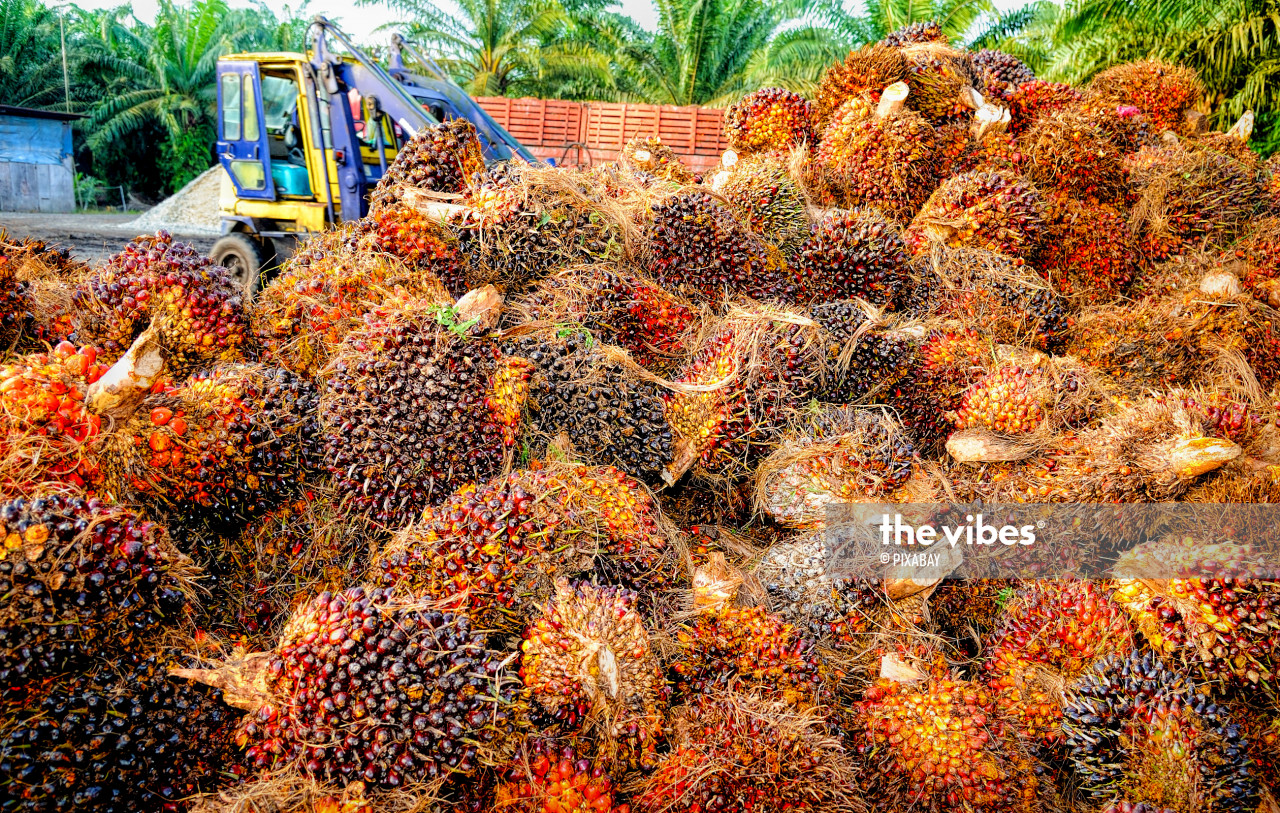
Like other developing countries, Malaysia faces huge ethical dilemmas in balancing economic growth and development with environmental protection and conservation. However, trivialising environmental problems while forefronting the economic and developmental gains of natural resource use is disingenuous and duplicitous.
The environmental impact of palm oil has not been communicated or understood well by the public, with the government instead highlighting its GDP contributions and successes in poverty alleviation. Indeed, there is still a very low awareness of the MSPO locally.
While there is nothing wrong in taking pride in our rapid development, this must be balanced with open discussion of the challenges arising, and genuine debate on how we can continue on a more sustainable trajectory. After all, a more sustainable palm oil sector (and indeed all other sectors) would mean that future generations can enjoy both environmental and economic benefits.
The Malaysian government needs to discard red herrings and focus instead on transparent, coordinated, and fact-driven science communication to better complement, and further encourage, positive conservation efforts.
As those responsible for our future, ministers and officials should be communicating that the environment is extremely important and not to be taken lightly. Only then can we take them seriously. – The Vibes, March 4, 2022
Benjamin YH Loh is a senior lecturer in the School of Media and Communication at Taylor's University Malaysia and an associate with the Asia Centre in Bangkok
Helena Varkkey is an associate professor at the Department of International and Strategic Studies, Universiti Malaya. Her research areas include transboundary haze diplomacy in Southeast Asia and global palm oil politics




